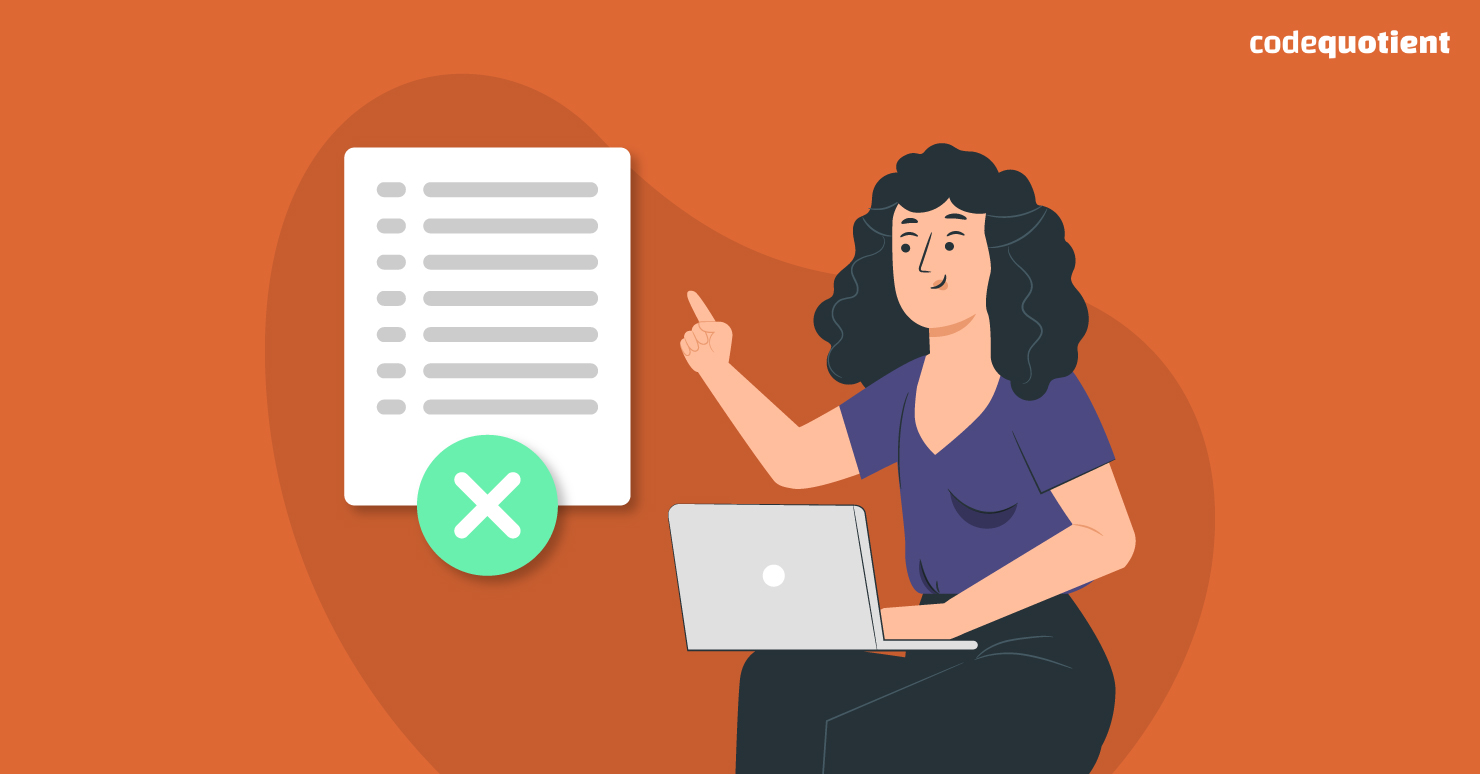As a student preparing for a coding interview, you should be able to show your competence as a software developer. This is why it’s important to have a solid understanding of core computer science concepts and the programming language you will be using.
Common pitfalls such as a lack of practice and not being thorough with the basics can seriously hamper your interview. It’s important to be aware of these common pitfalls that many students fall into during the interview preparation process.
In this blog, we’ll go over what to avoid while prepping for a coding interview so you can increase your chances of success.
10 Things Negatively Impacting Your Coding Interview

1. Focusing too much on basic details
While it’s essential to know the basics, it’s easy to get bogged down in common details and trivia and lose sight of the bigger picture. For example, memorising every single method in a programming language is not as important as understanding how to solve problems using those methods.
Instead of focusing on the minor details, focus on the fundamental concepts and the logic behind them.
2. Neglecting practice solving problems
Preparation for a coding interview is not just about studying concepts and language syntax, it’s about actually putting those concepts into practice by solving problems.
Make sure to spend ample time practicing coding problems and writing code to improve your problem-solving skills.
3. Not practising on a whiteboard or paper
Most coding interviews take place on a whiteboard or piece of paper rather than a computer. This can be a shock for those who are used to coding on a computer with all the helpful tools and resources at their fingertips.
Make sure to practice solving problems on a whiteboard or paper to get used to the format of the coding interview.
4. Underestimating the importance of communication skills
Coding interviews are not just about writing code; they’re also about communicating your thought process and ideas to the interviewer.
Revise how you are explaining the solution, why you chose a particular approach, and how you arrived at your solution.
5. Not studying the company culture and values
In addition to technical skills, it’s important to research the company’s business goals and understand its culture and values.
This shows that you’re interested in the company and allows you to demonstrate how your values align with theirs.
6. Avoiding the challenge of problem-solving
During the initial stages of practice, it’s easy to be tempted to immediately turn to the solution when faced with a complex problem.
However, working through the problem and attempting to find a solution strengthens your problem-solving skills and helps you better understand the correct answer.
7. Timing your progress too soon
As you’re still in the learning phase, timing yourself can cause unnecessary stress and pressure. This can impede the development of a proper learning approach in your mind.
Instead, focus on mastering the concepts and solving the problems without being concerned about the time it takes to arrive at a solution.
8. Relying solely on debugging through code execution
While preparing for a coding interview, it’s tempting to rely on running your code in an online editor to find and fix any mistakes. However, this is not always the case in a real interview.
You may not even be asked to run your code in many cases, but it should still be error-free. If you only rely on executing your code for debugging, you are not honing your debugging skills.
In an actual interview, it’s best to review your code multiple times and construct test cases before letting your interviewer know you’re finished. This way, you can validate the output of your code before executing it.
9. Becoming discouraged by failures
If you struggle with certain problems close to the interview date, it’s normal to feel unprepared. Regardless of how much preparation you’ve done, it’s common to fall short in some areas.
During the interview, the interviewer evaluates your problem-solving skills, not trying to trip you up. How you approach the problem and communicate your solution is just as important as your technical knowledge. The interviewer’s goal is to guide you in the right direction, so don’t panic if you get stuck. Instead, try to communicate with the interviewer and re-think the problem with their suggestions.
10. Overlooking the importance of non-technical skills
A coding interview is not just about writing working code. The interviewer will also assess your data structure and algorithm knowledge, problem-solving, communication, testing, and debugging skills, requirement-gathering abilities, and clean coding practices.
Some companies, like Amazon, evaluate your leadership skills and cultural fit through behavioural questions. Even if you are brilliant in the technical aspect of the interview, you may not land the job you want if you don’t perform well in the behavioural aspect.
Key Takeaways
In conclusion, a coding interview is an opportunity to showcase your technical skills and problem-solving abilities, but it’s important to approach it with a well-rounded perspective.
Avoiding these common pitfalls will increase your chances of success in a coding interview.
CodeQuotient: Maximum Preparation with Maximum Guidance
Check out CodeQuotient if you’re seeking a specialised online platform to improve your capacity for logic and problem-solving.
Your IT career may get off to a strong start with CodeQuotient, a comprehensive online learning and career platform.
CodeQuotient also provides project-based learning opportunities with the SuperCoders Program. With the program, you may evaluate your development, keep tabs on your advancement, and get personalised performance comments.
Contact us right away!




